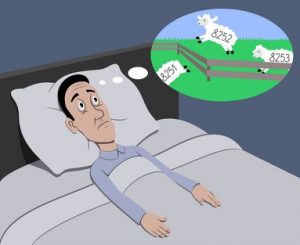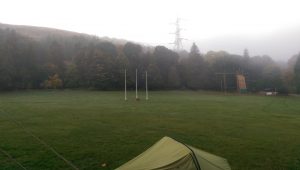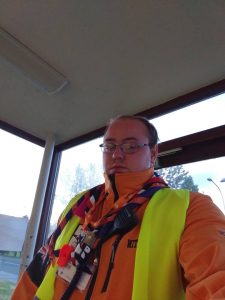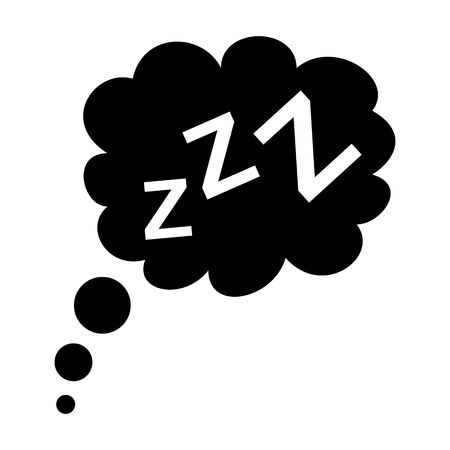Hi everyone, Martin back from a hectic couple of weeks. This post has been planned in for a couple of weeks, but for various reasons it’s fallen by the wayside, reasons including the topic I’m going to talk about! This is very much part of our “Looking After Yourself” series, and is applicable to everyone, from Participants through to IST, through to Contingent Leaders.
I’m going to talk about sleep.
Lyndsey has already very kindly touched on sleep and taking time for yourself in her fantastic posts about FOMO and Mental Health, but I thought the topic was important enough for its own post.
We probably don’t think a huge amount about sleep, it’s just something that happens. But sleep is a very important biological process that effectively recharges our batteries. Without sufficient sleep, all sorts of bad things happen, from irritability through to impaired judgement and delayed reaction times. Prolonged, insufficient sleep leads to a condition known as fatigue, which is a major contributing factor to a huge number of accidents.
The NHS Website suggests that we should aim for 8 hours sleep per night. This is a guideline based on the “average” person. I have a friend who survived through University on about four hours per night – the same amount of sleep attributed to the former PM Margaret Thatcher (which might explain a lot). I know of people who can get 12 hours and still wake up feeling exhausted. It’s very much a personal thing. Young People (participants and some of the IST) need more sleep than those more advanced in years.

At the Jamboree, you will have to manage your sleep.
What do I mean by this? Basically, you need to keep on top of your sleep. I’m almost certain that you won’t get 8 hours per night. From my own experiences, getting 6 is a luxury. But there are ways to manage this. Going for a nap or a siesta is a good way to give yourself a quick boost. Taking 30 minutes over lunch (after food!) or whilst the evening meal is being prepared is a good way of catching up on sleep. You may also get the opportunity to have a lay-in one morning if your activities start later – take full advantage of this opportunity. I know most of my friends in Scouting have learnt how to fall asleep on any form of moving vehicle to get a nap in. With so much of this Jamboree being self-contained, you won’t have the opportunity for the 4 hours worth of napping the participants heading to Hiroshima had in Japan, but take advantage of any opportunity you get.
I’m a 27 (almost 28) year old “adult” and I’m phenomenally bad at managing my sleep. I run mostly on caffeine and dark humour, I burn the candles at both ends – by which I mean I stay up late and get up far too early. Partly because I can’t delegate and there aren’t enough hours in the day for me to do everything myself, but I also get locked into a task and forget about the passage of time. Last night, as an example, I knew I was tired and should go to my bed early. I did this, but my mind was still racing from work and Scouts and I couldn’t settle down. Knowing that I needed a distraction, I picked up my book and started reading. The next thing I knew, it was 00:18 this morning and I needed a new book to read…

The Jamboree is going to be a bit like this. There will be distractions everywhere, from people wanting to swap badges, to parties in various sub-camps and Hubs or evening activities at the food houses. There will be something happening somewhere at the Summit 24 hours a day the whole time we’re there. It would be really easy to almost completely forget to sleep, until it’s too late. Which brings me on to an anecdote.
Most Scout and Explorer camps are only for Weekends. Unless you’ve been really lucky, all your briefing weekends or Unit weekends for this Jamboree have been just that. There will be some participants going to this Jamboree who have never been on an event that was more than two nights. What normally happens is that Cubs and Scouts tend to run themselves ragged for the first evening and night. They don’t want to sleep, they want to stay up all night talking or go off on adventures. Then, around lunchtime on Saturday they start to slow down as the fatigue hits them. Then at around 8pm, they start wanting to go to bed. The Sunday is usually a nightmare dealing with tired Young People who go home, get hosed off and crash for the rest of the day before going back to School on the Monday.
A couple of years ago, I took my Scouts away down to Great Tower in the Lake District for the late May bank holiday weekend. We were there with a Troop from Derby where we knew a couple of the leaders. It was the first time I’d ran a camp for more than two nights, and with a couple of exceptions, the first time any of my Young People had spent more than two nights away. The Young People ran themselves ragged for the first 24 hours, one proudly proclaiming he hadn’t slept at all on Friday night, and then crashed on the Saturday evening and missed some of the Sunday activities because he was so tired. Others realised (with some prompting) that getting to bed would make the Sunday, and Monday more enjoyable.

That was a three night camp. We’re at the Summit for a fortnight. As tempting as it might be to run yourselves into the ground over the first couple of days, it’s not worth it. I now have some specific advice for different groups:
Participants & Unit Leaders
Depending on who you speak to, the programme may be timetabled, with some considerable distances to be walked to specific activities. This means you’ll have to be up early. Caroline Pearce (the Head of Contingent) shared a link to a blog written by an American Scout leader about his experiences at the Summit (if you’ll excuse the ads for guns in the sidebar). One of things he comments on is the comments on is that breakfast started at 0630 one morning so people could get out to their activities.
This means you might have to consider when you’re going to go to bed the night before, for the next days activities. If you have to be up at 0600, you might not want to be getting to bed at 0200. This might be sustainable for a couple of days, but overall you will crash and you will miss out on other activities.
I know from my Jamboree back in 2007 that somewhere near the middle of the Jamboree tempers start to flare. A lot of this is brought on by lack of sleep and the associated irritability. I distinctly remember wanting to strangle someone because they were crunching their cereal one morning – which is not a rational thought anyone should be having. Recognise the signs that you’re not getting enough sleep and act accordingly.
IST
It is sometimes joked that IST is Irritable Stressed & Tired, and there is an element of truth to this. I think, having been both a participant and IST, that it is harder for us to manage our sleep because our shifts are based around the participants needs. Security and medical (at the very least) will be operating 24 hours a day the whole time we’re on site. That means night shifts and what we would normally call unsociable working hours. Making sure you get enough sleep (and eating at a reasonable time!) is important. In Iceland I was on permanent nights, and trying to socialise with my friends (on earlies) through the day, which really messed with my sleep cycle, and by about half way through the Moot I had to take a day where all I really did was sleep and eat to try and recover.

Remember, how we interact with the Participants will make or break their Jamboree. If we’re miserable, irritable and snappy then that won’t give them the experience that we want to give them.
To bring this to a close, sleep is important on the Jamboree and the pre- & post-events. Learning to realise when you’re tired and need to go to bed is a valuable life skill and will enhance your Jamboree experience. You may miss out on some things by getting an early night, but you will get to experience others. Lyndsey spoke about missing the opening ceremony in Canada back in 2013 because she’d not got enough sleep beforehand. I have a similar story about the culture day ceremony, and the on-site opening ceremony in Iceland (you think I’d have learnt my lesson…)
You may have been told that food is fuel, but sleep is a comprehensive service package.


Thanks Martin another good post matt x